Walrus Audio takes guitar tone deeper into the ambient reverb rabbit hole with Slöer
The Oklahoma effects company expands its Slö platform with stereo, selectable waveforms, Stretch control, plus two new modes for a total of five core sounds to choose from
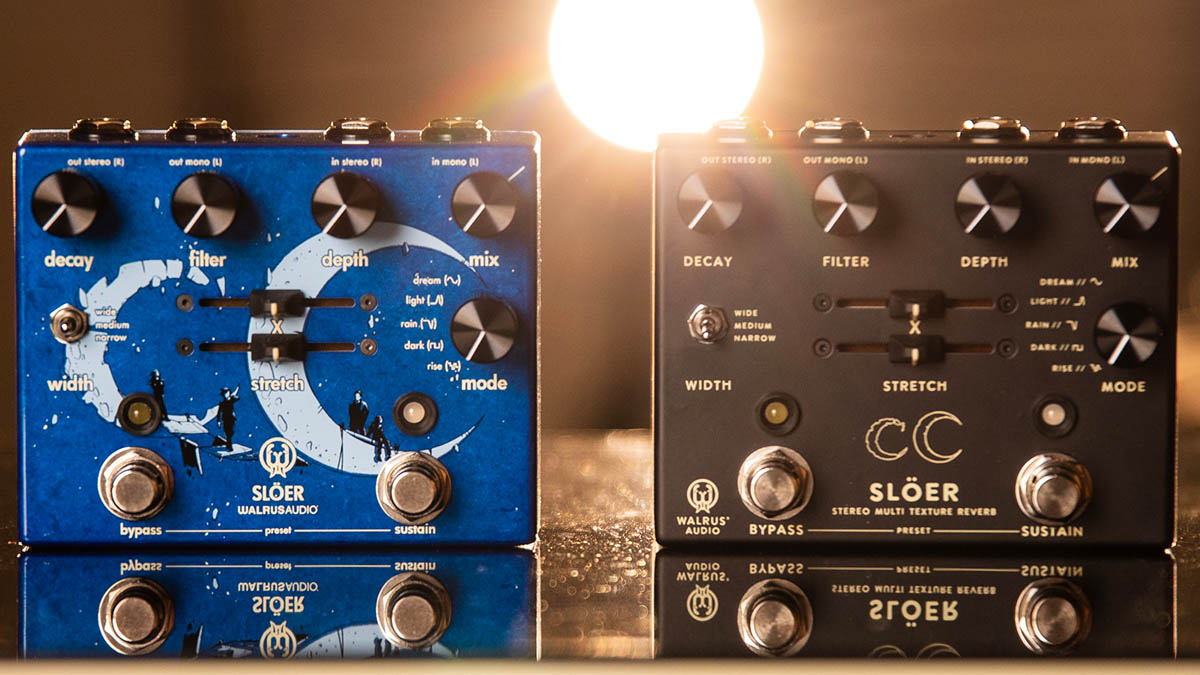
Want all the hottest music and gear news, reviews, deals, features and more, direct to your inbox? Sign up here.
You are now subscribed
Your newsletter sign-up was successful
In the beginning, there was the Slö, Walrus Audio’s “multi-textural” reverb pedal that soon became a byword for compact pedalboard soundscaping solutions. Then we had Slötva, which allowed us to save our favourite tones to presets.
Now, Walrus Audio has taken its ambient adventures further with Slöer – a pedal that promises much for the player with an ear for spaced-out, ethereal electric guitar tones.
So yes, shoegazers, post-rockers, post-metallers and avant-pop adventures unite; this is a pedal you are going to want to check out.
First thing to note is that all this new functionality means a bigger enclosure. Walrus has however once more positioned the jacks at the top to ease placement on the ‘board. Secondly, there are a lot of controls, with two sliders, two footswitches, a three-way toggle switch, plus dials for Decay, Filter, Depth, Mix and Mode.
That latter Mode dial is a five-way rotary that selects your reverb algorithms, and if you have been following the evolution of the Slö format you will be familiar with three of them. Dark, Rise and Dream are holdovers.
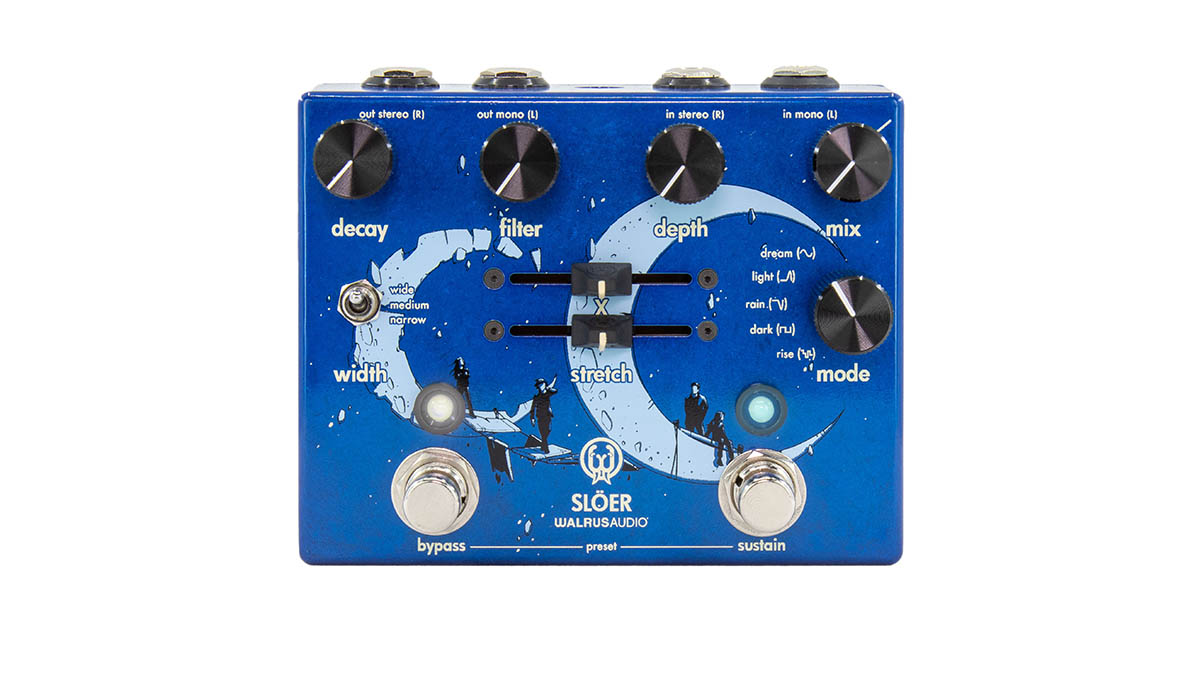
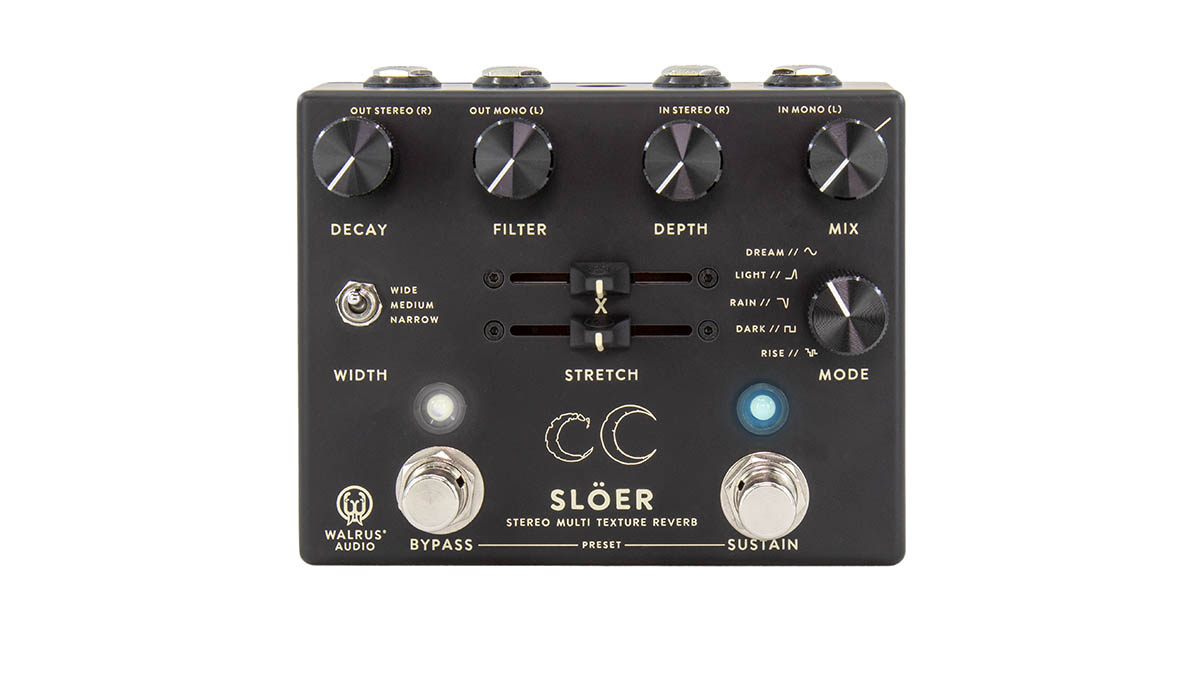
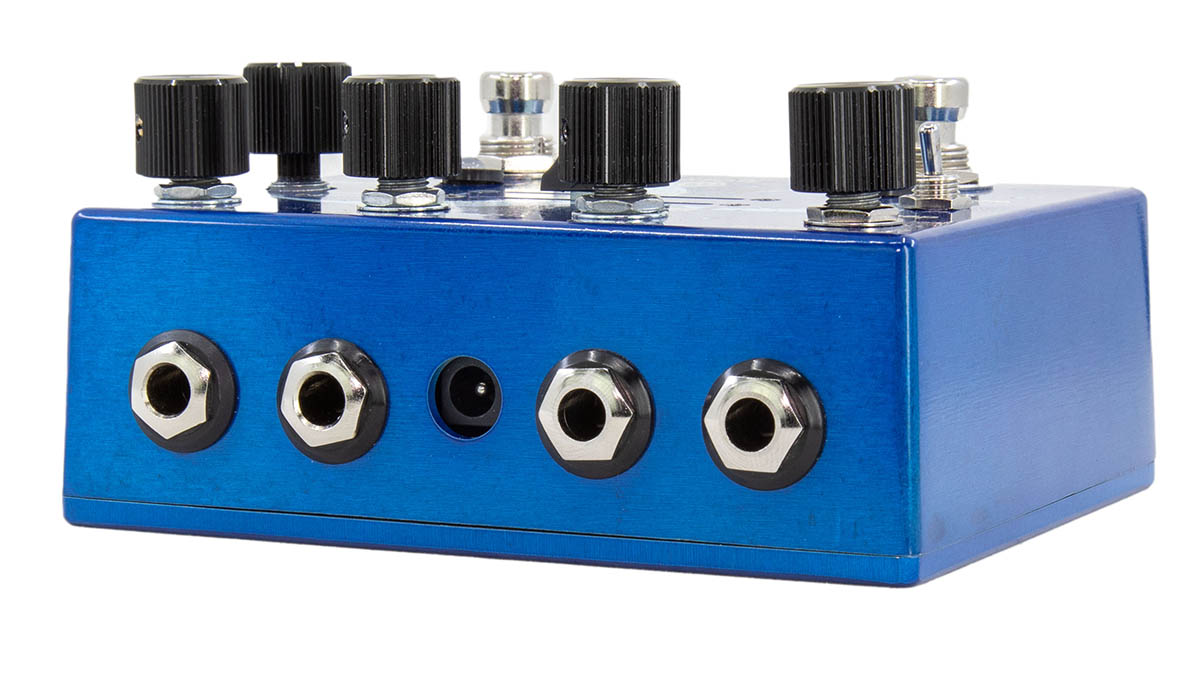
Dark adds an octave-down effect to the reverb trails, Rise is an auto-swell mode and a source of cinematic uplift when needed, and Dream applies a latching pad function to a “lush” reverb – experimenting with the Sustain footswitch will latch the signal while the X slider can some vibrato weirdness on top.
Meanwhile, the newly programmed Rain and Light modes offer “tappy and trippy”diffusible delay taps and an octave-up “shimmer” effect respectively.
Want all the hottest music and gear news, reviews, deals, features and more, direct to your inbox? Sign up here.
Don’t be fooled by the slider – it is the same X control as on previous editions. The other slider is a Stretch control that allows players to adjust the reverb sample rate and find darker sounds, longer reverbs and weird artefacts to colour your tone. Walrus also offers the choice from five modulated settings – Sine, Warp, Sink, Square and Random.
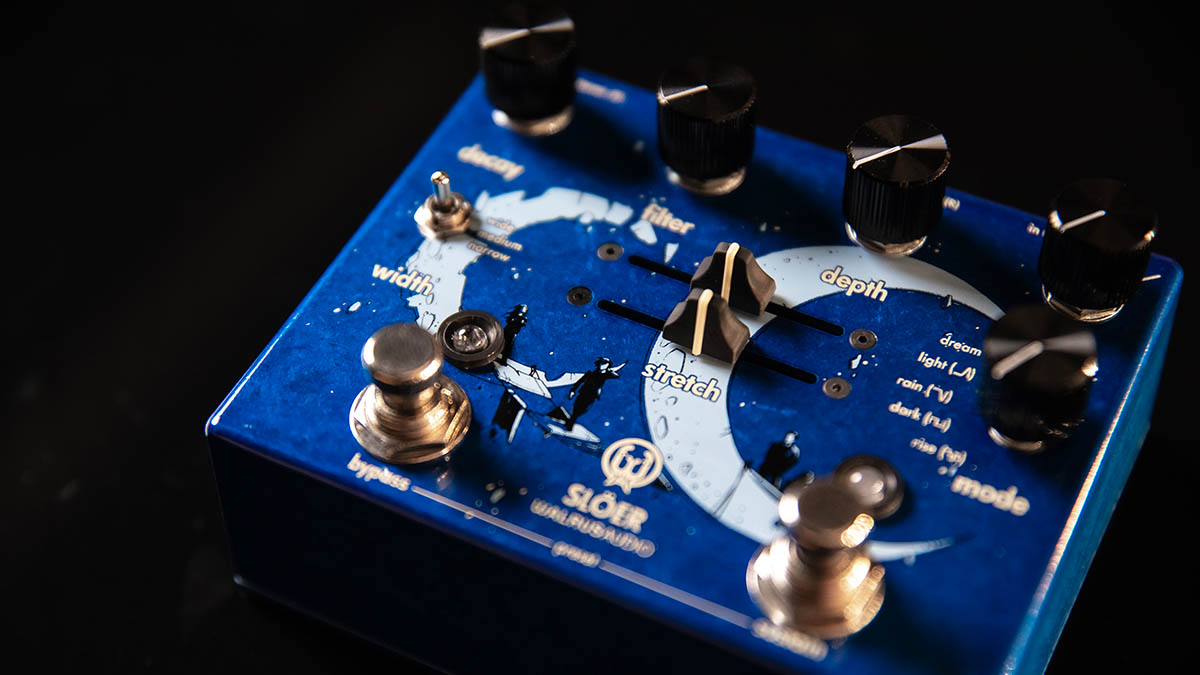
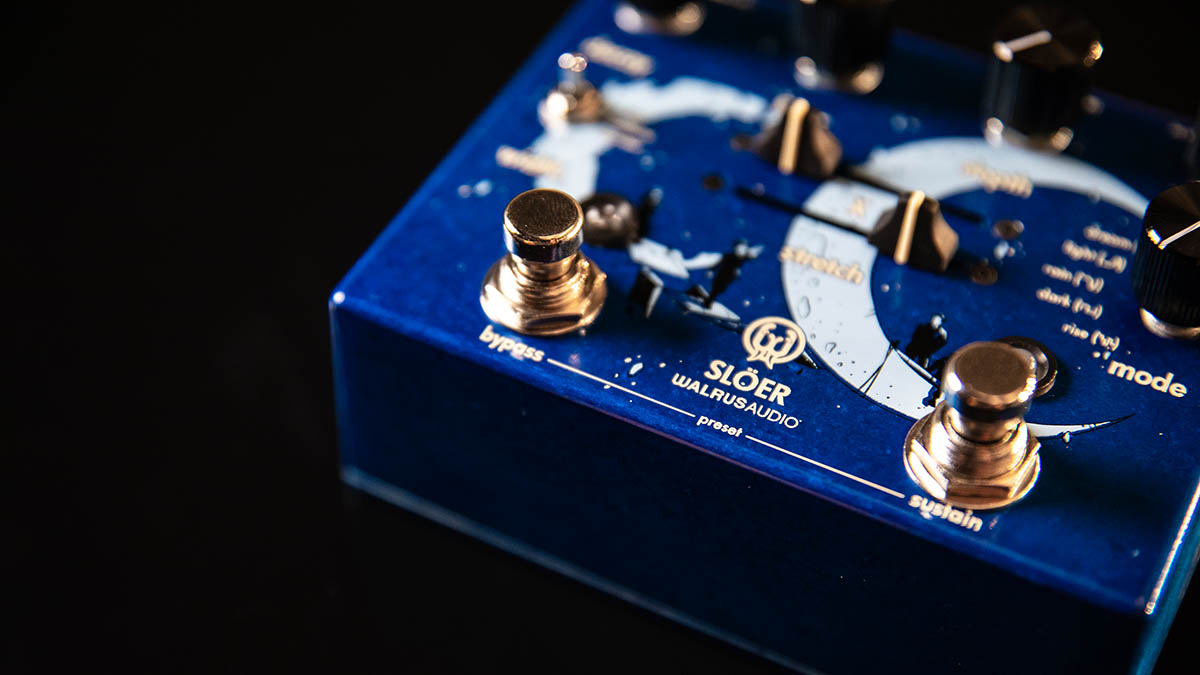
Stereo and the means to control is another of the big ticket upgrades here. That three-way toggle switch allows players to set the width of the stereo from narrow, medium to wide. Once more, you can save presets.
The Slöer comes with a choice of Midnight Blue or Matte Black finishes. It is powered by 9V of DC power and will draw a minimum of 100mA. A quality isolated pedalboard power supply is recommended. The Slöer is priced £339 and available now. For more details, head on over to Walrus Audio.
Does this make the Slö and Slötva obsolete? The more serious ambient players might want to upsize but we would argue there is plenty of appeal still in both pedals. Some players will prefer the more compact footprint. You can read MusicRadar’s review of the Slö here.
Jonathan Horsley has been writing about guitars and guitar culture since 2005, playing them since 1990, and regularly contributes to MusicRadar, Total Guitar and Guitar World. He uses Jazz III nylon picks, 10s during the week, 9s at the weekend, and shamefully still struggles with rhythm figure one of Van Halen’s Panama.
